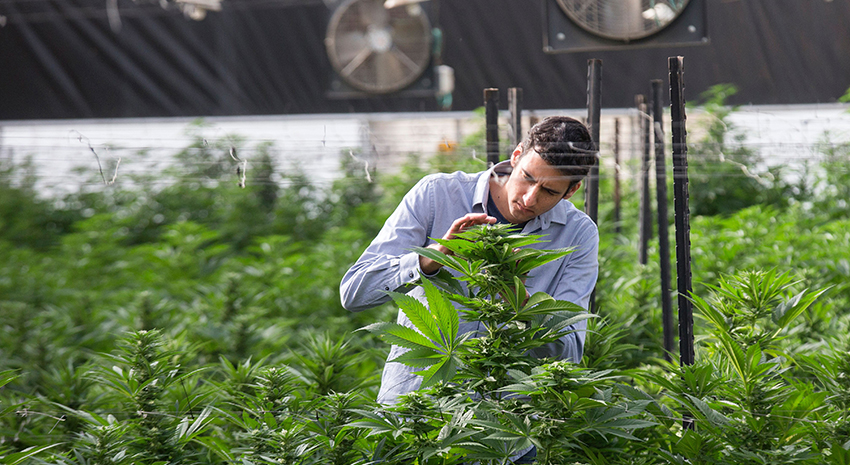Headlines boast, “Israel leads the world in cannabis research,” but don’t be confused by American lenses. It certainly doesn’t mean the state is looking deep into marijuana’s black market. All it means is that Israel leads in research into medical marijuana. And, considering the experience and funding that’s going into that research, it does demand attention.
Raphael Mechoulam, Ph.D. originated cannabis chemistry when he identified THC in 1964. He and his colleagues have been exploring the therapeutic effects of natural and synthetic cannabinoids ever since.
In 1992, together with William Devane, Ph.D. and Lumir Hanus, Ph.D., the trio labeled the brain’s natural THC as anandamide. These and subsequent discoveries moved toward an appreciation of endocannabinoid functions that produce natural highs as neuroprotective agents.
As noted by David Jay Brown of Mavericks of the Mind, Mechoulam has continued with controlled studies into the therapeutic use of “cannabinoids in the treatment of multiple sclerosis and other spasticity ailments, asthma, rheumatoid arthritis, cancer chemotherapy side-effects, glaucoma, AIDS wasting syndrome, and seizure disorders such as epilepsy.”
What are they up to now?
While the United States continues its ban on marijuana use and officially only reluctantly tolerates the legitimization of medical marijuana, the state of Israel “could become the first nation in the world to create a federally run marijuana program.” It already invests in clinical trials to improve quality strains and research their values.
To paraphrase Eliana Rudee of the Observer:
-
Israel not only approves medical use, it subsidizes qualified patients creating credibility and legitimacy for usage.
-
As a small country—in territory and population—Israel is less hampered by bureaucracy and compliance protocols. This effectively places patients before politics.
-
Israel has nothing comparable to the Federal Drug Administration (FDA) or the National Institute of Drug Abuse (NIDA). In the United States, the NIDA is the only source of materials for research.
-
Israelis do not stigmatize cannabis as a stoner high. They also do not treat users as criminals or addicts.
-
Israeli tradition and culture are inclined to value and share anything with healing powers.
Where are they going?
Entrepreneurs, medical professionals, researchers, and investors continue to search for the magic bullet of a pure drug.
-
The Breath of Life Pharma is a fortress of laboratories and greenhouses where software monitors and manages each plant.
-
Roughly 25,000 patients have been given prescriptions for medical marijuana to relieve symptoms of epilepsy, PTSD, cancer, and other degenerative conditions.
-
Jerusalem’s prestigious Hebrew University opened a cannabis research center and joined a consortium of 19 research teams at local academic institutions.
-
It is estimated that 230 varieties of cannabis grow near a quiet village in a facility housing 50,000 plants.
And, perhaps more important is the interest major world investors are showing. According to Saul Kaye, CEO of iCan, U.S. firms have invested $50 million in Israel medical marijuana research, agro-tech startups, and inhalers, as well as other delivery devices.
Jeffrey Friedland, author and CEO of INTIVA, adds, “the cigarette giant Philip Morris International has announced that it will invest $20 million in a medical cannabis technology company [Syqe Medical].”
History, progress, and investment tells you that Israel leads research in medical marijuana and is very likely to remain the leader. Once you understand how Israel became known as the world’s cannabis research leader, it becomes obvious they are already beyond being the pacesetter. And, until the FDA and NIDA make a commitment to support medical marijuana research and/or the United States Congress agrees to funding and support, Israel will remain almost impossible to catch up with.











